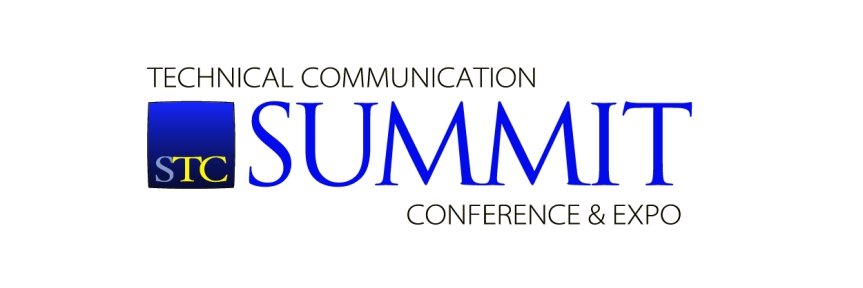Reminder: I will be doing my job hunt presentation virtually for the PASSMN user group tonight! If you want to check it out, see my earlier post (below) for more information, including details on how to join! Hope to see you there! https://pianorayk.wordpress.com/2023/11/13/speaking-for-the-minnesota-pass-group-tuesday-november-21-passmn-usergroup-sqlfamily/?page_id=8301
Category: Resumes
My first #STCSummit: the debrief #STC23 #TechComm
This article is going out a little later than I'd hoped, but better late than never, and I wanted to get this out while stuff was still fresh in my mind. After taking some time to recover, I've returned home from my first STC Summit! I've wanted to attend this event for some time, and … Continue reading My first #STCSummit: the debrief #STC23 #TechComm
Greetings from #WELocalHartford #WELocal @SWETalk #SWELocal #WELocalHartford2023
I am writing this from a workstation area in the Connecticut Convention Center, location for the WE Local Hartford conference. I arrived in Hartford around 6:30 pm last night, managing to arrive before a snowstorm hit several states in the Northeast (I wanted to make sure I left early as I could for exactly this … Continue reading Greetings from #WELocalHartford #WELocal @SWETalk #SWELocal #WELocalHartford2023
Upcoming speaking engagements (as of 8/30/2021) #ProfessionalDevelopment #TechCon21 #PASSDataCommunitySummit #DataSaturday #SQLSaturday #Networking #SQLFamily
Now that I have a couple of confirmed speaking engagements, I figured that this was a good time to update my upcoming speaking schedule! Confirmed These engagements are confirmed. I don't have exact dates or times for either of these (and I might not for a little while); all I know is that these events … Continue reading Upcoming speaking engagements (as of 8/30/2021) #ProfessionalDevelopment #TechCon21 #PASSDataCommunitySummit #DataSaturday #SQLSaturday #Networking #SQLFamily
#PASSDataCommunitySummit — I’m speaking! #PASSSummit #SQLSaturday #DataSaturday #SQLFamily
And now that it's been made public, I can announce this! (I've actually known about it for a week, but haven't been allowed to announce it until now!) I have been selected to speak at PASS Data Community Summit! For those who've been following along, PASS Data Community Summit is the successor to PASS Summit, … Continue reading #PASSDataCommunitySummit — I’m speaking! #PASSSummit #SQLSaturday #DataSaturday #SQLFamily
What are you proud of? Tooting your own horn on your #resume — #JobHunt
Yesterday, a good friend of mine texted me, asking me to send him my resume. This particular friend works for a major nationwide consulting firm. I won't say which firm, but I will say that it's a household name. In his position, he is often in a position to hire, and he is well-connected. After … Continue reading What are you proud of? Tooting your own horn on your #resume — #JobHunt
Dating yourself on your #resume — #JobHunt
I've spoken to a number of friends about my frustration regarding the job hunt (going nine [!!!] months -- and counting). I've wondered, at times, whether one of the reasons why I've been constantly rejected is my age. Ageism -- a.k.a. age discrimination -- is, of course, illegal. But when it comes to the job … Continue reading Dating yourself on your #resume — #JobHunt
Reminder: I’m speaking at #SQLSaturday this weekend #SQLSat1017
This is a reminder that I will be speaking at virtual SQL Saturday #1017 (Minnesota) this Saturday, December 12. A vast number of people, myself included, are looking for work. I will do my presentation titled "I lost my job! Now what?!?" this Saturday. I will discuss topics that include, among other things, dealing with … Continue reading Reminder: I’m speaking at #SQLSaturday this weekend #SQLSat1017
Reinventing the #resume (again) #JobHunt
I had a conversation today with a recruiter -- technically, it was an interview, but the way we spoke, it was more of a conversation between an agent (her) and a client (me) -- who gave me some advice regarding my resume. I came away from the conversation with a few insights, and I'd like … Continue reading Reinventing the #resume (again) #JobHunt
Your job application was rejected by a human, not a computer.
Last Saturday, at Virtual SQL Saturday #1003 (Memphis), I sat in on Christine Assaf‘s presentation about Organizational Trauma: Mental Health in a Crisis (or something like that — I don’t remember the exact title). I found her presentation interesting and relevant to my own; so much so, in fact, that I invited her to sit in on my presentation and offer any of her insights.
After this weekend, Christine wrote this ‘blog article. I haven’t yet had a chance to fully process it (as I’m writing this, I haven’t had my coffee yet, and my brain is still in a fog), but what little I did process, I found interesting.
I intend to scrutinize this more when I’m a little more awake. And I suspect I’ll be making some adjustments to my presentation.
INTRO:
Recently I attended a presentation where a commonly held belief was repeated and I feel the need de-bunk this. The speaker stated “75% of applications are rejected by an ATS (applicant tracking system) and a human never sees them…”
First, I want to point out that recruiters will tell you this is false. As the main users of ATSs, recruiters have extensive experience and years in talent acquisition, and will tell you they hear this all the time and they cringe upon it’s utterance. But if you want to know my opinion on why this “myth” has infiltrated the job seeking world, scroll past all the research and jump to the end.
MY RESEARCH:
Secondly, let’s track down the origin of this false statistic. The speaker I heard it from cited topresume.com. So I did some digging:

That topresume.com article (which includes the same false stat…
View original post 1,019 more words


